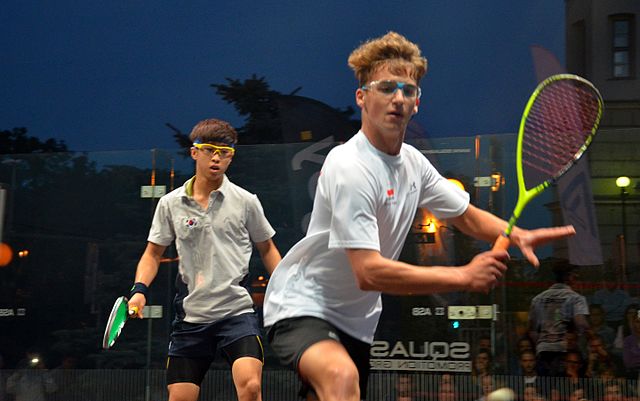We’ve looked at some of the aspects relating to the development of junior players here on SquashSkills previously with our blogs on the growth of young players and more general early-stage development, and it’s a topic that we frequently receive questions on from the many coaches and parents amongst our members.
The early-stage experiences a child has in competition have been shown to have a potentially huge effect upon their growth within their sport, and can really shape subsequent attitudes and outlooks. Peter talks in one of his blogs here on the site about how some of his early competitive experiences affected his motivation and mindset in an overall positive manner, but things can just as equally go the other way with overwhelming pressures and unrealistic expectations placed – often inadvertently – upon young players leaving them anxious and unhappy.
It can be a very fine balancing act for parents, in particular, to provide their child with the right support and motivation whilst avoiding becoming the stereotypical ‘pushy parent’ that we so often see within the junior game.
Though adults working with young players in most cases have the best of intentions, the way they interact and feedback to these young players can frequently have very negative effects on their growth and development. This effect can be exacerbated when the pressures are coming from a parent, due to the crucial developmental role that mothers and/or fathers have in their child’s life.
A recent study from Ithaca College looked in more depth at what these effects actually are within a competitive environment, and exactly how they affect the child athlete.
Their results showed that the outward expectations a parent held for their child’s performance had a significant effect upon the child’s anxiety levels.
This was particularly apparent when the message a parent was transmitting to the child was one of wanting them to outperform others or to not lose to others, as opposed to focusing on the child simply performing their best and displaying signs of development and improvement.
 The full study review from Science Daily is linked below, and it’s worth a read for any parents looking to provide a more supportive and motivating environment for their child within their sport. There are also some interesting points raised within the review as to how the child’s expectations can, in turn, affect their parents’ feelings and anxiety.
The full study review from Science Daily is linked below, and it’s worth a read for any parents looking to provide a more supportive and motivating environment for their child within their sport. There are also some interesting points raised within the review as to how the child’s expectations can, in turn, affect their parents’ feelings and anxiety.
The take-home message that this and other similar studies tend to almost unanimously conclude with, is to place an emphasis on providing a supportive and reassuring environment focusing on a child’s enjoyment of their sport, whilst encouraging them to develop and improve within that framework – not just an athlete, but as a fully rounded individual.
A child that is given reassurance and support and encouraged to grow and improve in all aspects of their lives is in a far better position to go out relaxed and confident to perform in competition, and ultimately develop a positive, healthy, and well balanced long-term perspective in regards to their sport.
Gary Nisbet
B.Sc.(Hons), CSCS, NSCA-CPT, Dip. FTST
SquashSkills Fitness & Performance Director
Want to learn about developing juniors?
In this playlist, Dave Pearson talks about how to develop successful juniors and his own experiences teaching them through the years.
Watch now